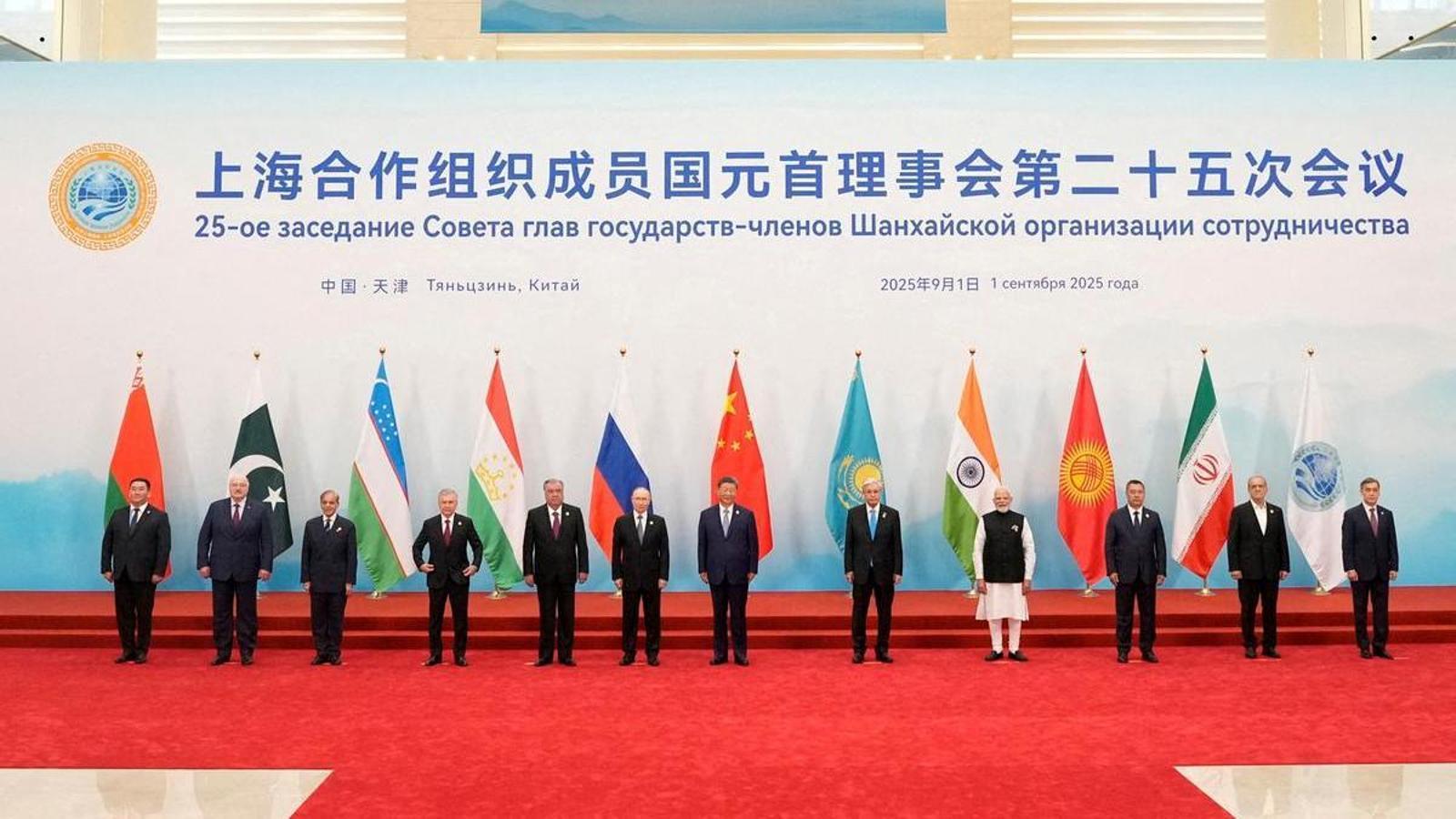The Chinese dragon, the Indian elephant, and the Russian bear want to corner the American eagle.


"It is vital that the Chinese dragon and the Indian elephant unite," Xi Jinping told Indian Prime Minister Narendra Modi at their first meeting on Sunday in Tianjin. And surely, out of the corner of his eye, the Russian bear, that is, Vladimir Putin, was smiling with satisfaction, since he was standing before his two main economic allies, two countries that neither sanction nor publicly scold him and, in turn, buy the oil that Western countries have stopped buying. This 25th edition ofthe Shanghai Cooperation Organization (SCO) summit, which ended yesterday despite having a symbolic epilogue these days with Putin's official visit to China and tomorrow's military parade in Beijing, staged that another world order is possible and that the shadow of the imperial eagle of the United States, which its president, Donald Trump, intends to control, can be avoided.
The SCO is an organization of cooperation and security that is made up of China, India, Russia, Pakistan, Iran, Kazakhstan, Kyrgyzstan, Tajikistan, Uzbekistan and Belarus, and which together represent 40% of the global population. 5 Many of these states, it must be said, are not exactly known for their defense of democracy and human rights. However, until now their meetings remained within the scope of regional interest and their summits did not attract the attention of the latter. The reason is obvious: Trump's tariffs and his erratic policies in the international arena, which have turned global diplomatic relations upside down.
The most significant event, clearly, has been Modi's visit to China after a seven-year absence. The Indian Prime Minister has arrived from Japan, where he has also tried to seek commercial allies, and after a week in which he has seen how the President of the United States, Donald Trump, has punished him with tariffs of 50% for his relationship with Moscow, from which he continues to buy crude oil despite the sanctions. American analysts had already warned that this aggressive policy would have consequences, but in addition there was a diplomatic clash between the US and India in mid-June, when according to The New York Times They broke into a quarrel after a call in which Trump demanded Modi win the Nobel Peace Prize for his alleged mediation in the conflict with Pakistan, something Modi angrily denied.
The fact is that Putin, Modi, and Xi have staged a complicity that is hard to find with the White House, and China has managed to lay the first stone in its objective of creating a new regional development bank that will make the yuan the main currency of exchange. It remains to be seen how all this ends, and how Trump will react. Tariff negotiations between China and the United States are still open, but the global diplomatic chessboard is shifting, and the European Union is not only not the referee, but is also struggling to even have a seat at the table. The cyberattack, which is being investigated whether Russian, which was suffered yesterday by the plane of the President of the European Commission, Ursula von der Leyen, is not a good omen.
